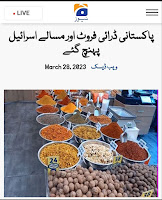Pakistan's political climate has been marked by controversy and turmoil, with allegations of corruption, abuse of power, and the use of fascist policies. The current government has been accused of using all its power against the Pakistan Tehreek-e-Insaf (PTI) party and its leader, Imran Khan, to win the upcoming elections.
The government has been accused of filing 150 FIRs against Imran Khan, his companions, and supporters, and using state institutions to target the PTI. Many believe that the government is using fascist policies to suppress opposition voices and stifle dissent. Furthermore, the establishment is alleged to be controlling all major institutions in Pakistan, which has raised concerns about the democratic process in the country.
Despite allegations and concerns, the government and the establishment have not shown any signs of changing their stance. Audio leaks have surfaced, but no institution is making any effort to investigate them. It is alleged that all institutions are controlled by fascist powers, and the judiciary is powerless and cannot investigate. There is also a fear that no one is ready to accept court orders in the event of a dispute between the government and the establishment.
Additionally, the government violated the constitution by not announcing the election within 90 days, as per the constitutional requirement. This has raised concerns that the government may be afraid of losing the upcoming election, and is trying to hold onto power by any means necessary.
Despite these challenges, there is hope for Pakistan's future. Civil society organizations and the media are working tirelessly to hold the government accountable and raise awareness of the issues facing the country. They have highlighted concerns such as corruption, human rights abuses, and the use of fascist policies against opposition parties.
It is important to remember that political tensions and challenges are a part of any democracy, and Pakistan is no exception. While disagreements and differences of opinion exist, all parties must work together to find common ground and address the issues facing the country. The government must ensure that it adheres to the constitution and democratic processes to maintain the trust and support of the people.
In conclusion, the allegations of the use of fascist policies against the PTI and other opposition parties in Pakistan are concerning and require attention. It is essential that all parties work together to address these issues and uphold the democratic process in the country. Civil society organizations and the media play a vital role in holding the government accountable, and their efforts must be supported. With continued efforts and collaboration, Pakistan can overcome its challenges and build a better future for its people.

.jpeg)
.jpeg)
.jpeg)

.jpeg)